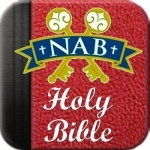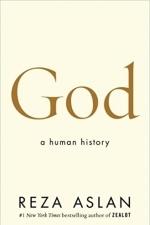
NLT Bible by Olive Tree
Reference and Book
App
NLT Bible+ by Olive Tree is a must-have app for reading and studying God’s Holy Word. Take notes,...

Catholic New American Bible Revised Edition
Reference
App
This iPhone/iPad app has been approved by the United States Conference of Catholic Bishops (USCCB). ...

NIV Bible by Olive Tree
Reference and Book
App
NIV Bible by Olive Tree is the best free Bible app for reading and studying God’s Holy Word! Do...

Bible Scholar Interactive
Reference and Games
App
Now just $2.99. The Bible Scholar named one of: "25 Incredible..Apps Every Theology Student...

Bible by Olive Tree
Reference and Book
App
Bible by Olive Tree is the best free Bible app for reading and studying God’s Holy Word and comes...

NKJV Bible by Olive Tree
Reference and Book
App
Bible+ by Olive Tree is the best free Bible app for reading and studying God’s Holy Word! Do more...

Amplified Classic Bible
Reference and Book
App
Amplified Bible Classic by Olive Tree is a must-have app for reading and studying God’s Holy Word....

NRSV Bible by Olive Tree
Reference and Book
App
NRSV Bible+ by Olive Tree is a must-have app for reading and studying God’s Holy Word. Take notes,...

Bible Maps by Olive Tree
Reference and Book
App
Bible+ Maps by Olive Tree is a must-have app for reading and studying God’s Holy Word. Take notes,...
Hazel (1853 KP) rated God: A Human History in Books
Nov 5, 2017
Where did religion come from? This is the question Reza Aslan, a scholar of religions, attempts to answer in his latest publication, God: A Human History. To date, Aslan has tackled subjects such as the life of Jesus of Nazareth, and the origins, evolution and future of Islam. In this book, the author journeys back to the earliest evidence of human existence and, using a mix of resources, theories and investigations, tries to determine how our ancestors conceived the idea of gods and souls. Maintaining the idea that the majority of humans think of God as a divine version of ourselves, Aslan also looks at the way our perception of life after death has altered due to the changes in our governments and cultures.
Reza Aslan claims that he, a Muslim-devout-Christian-convert-turned-Sufi, is neither trying to prove or disprove the existence of God or gods. Instead, he is providing readers with a thorough history of religion with a strong suggestion that we, as believers, have fashioned God in our image, and not the other way around.
Insisting that belief systems are inherited from each previous generation, Aslan takes a look at ancient cave drawings where he, and many other theorists, surmise that a form of religion was already well underway. Lack of written word results in a lot of speculation and hypothesis as to what these, usually animal-like, drawings represent, however, many have come to the conclusion that early humans had some form of animistic belief system.
Although not a dig at religion, after all, the author is religious himself, the following chapters bring in to question the authenticity of past and present beliefs. With reference to various psychologists, Aslan poses the theory that ancient humans may have misinterpreted dreams as evidence of a spirit realm. With no one qualified to clarify the things they did not understand, anything without a clear explanation may have been attributed to a god or gods.
As the author describes how religious ideas may have developed from these primitive beliefs to the fully detailed faiths of today, he labels the human race as anthropocentric creatures that have based their religions on human traits and emotions. By reporting in this way, it comes across that the past ideas of the soul, spiritual realms, gods and so forth could not possibly be true, yet, as the final chapters suggest, Aslan is still adamant about the existence of God.
Aslan’s narrative speeds up, finally reaching the recognizable religions of today. Beginning with the Israelites, enslaved by the Egyptians, the author explains, using biblical references, how the first successful monotheistic religion came about. However, researchers have studied the early Bible texts and are inconclusive as to whether the God worshipped by the Jews was the only divine being or whether there were others of a similar standing.
Next, Aslan explores Christianity, posing more questions than he solves, for example, is God one or is God three (i.e. the Holy Trinity)? He defines and compares the definitions of monotheism and pantheism, eventually bringing in Islam and the development of Sufism, which he is not afraid of admitting he agrees with.
God: A Human History is disappointingly short, ending with the feeble conclusion that humans are born with the ability to be convinced of the existence of a divine being and the soul, but it is our own choice to decide whether or not to believe in them. The remaining third of the book is an abundance of notes on the texts, bibliographical references, and Reza Aslan’s personal opinions about the ideas and theories mentioned in his history of religion.
Although an extensive history on the origins of religion, God: A Human History leaves readers none the wiser as to whether their belief is founded in truth or whether it is something that has evolved over time due to lack of understanding about the world. Granted, it was not the aim of the book to prove or disprove the existence of God, however, it may unintentionally sow seeds of doubt or, potentially, anger devout believers. However, there is no attempt at persuading readers to believe one thing or another, thus making it suitable for people of all religion and none.
